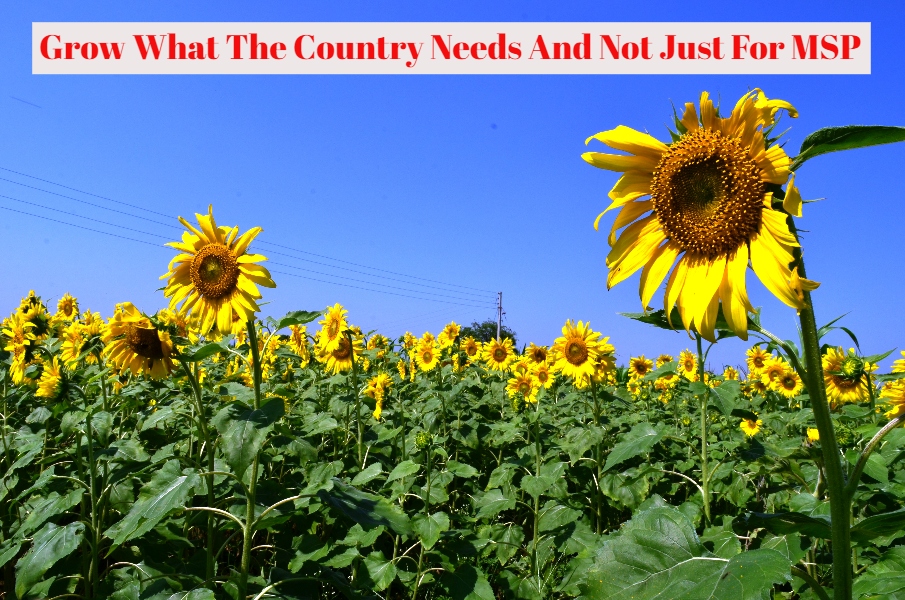

By A Special Correspondent
First publised on 2021-02-23 06:42:33
There is no denying the fact that MSP for wheat and paddy has made farmers grow these crops, especially in Punjab, just to avail the benefit. Despite Punjab being a water-deficient state and despite the warehouses of the Food Corporation of India overflowing with bags of wheat and rice (of which a substantial quantity is consumed by rats or rots every year), the farmers there persist in growing paddy just to avail the MSP. It is true the farmers are annadatas but when they show an inflexible attitude in shifting to growing what the nation needs and instead continue to grow what they want, the shine is lost. Although oilseed plants are grown in Punjab, there is a huge opportunity to bring more acreage under such plantation.
Prime Minister Modi has rightly pointed out that that India spends Rs 65000 to Rs 70000crore every year in importing edible oils. A part of this amount can go to Indian farmers if they grow oilseeds. Also, if oilseeds are processed in Indian factories, jobs will be generated and wealth will be created. Modi has urged the states to encourage farmers to grow crops that are suited to the agroclimatic conditions of the particular state and build the necessary infrastructure to make the shift possible. Pulses are another area where India has to spend on imports. It is extremely important that farmers understand the need to shift to crops that are in demand instead of growing crops just to avail the benefit of MSP.
The best part is that if farmers grow crops that are in demand, they will get a price that will be much higher than the MSP as market factors will work in their favour. There is no way oilseeds processors can avoid paying a good price for the crop if they want to run their factories. Hence, farm unions will also have to explain to the farmers that they have to grow what is best according to the agroclimatic condition of their states, what the country needs and not just to avail the benefits of MSP. Once the farmers understand this and make the shift, they will have a lot more bargaining power in the market.











